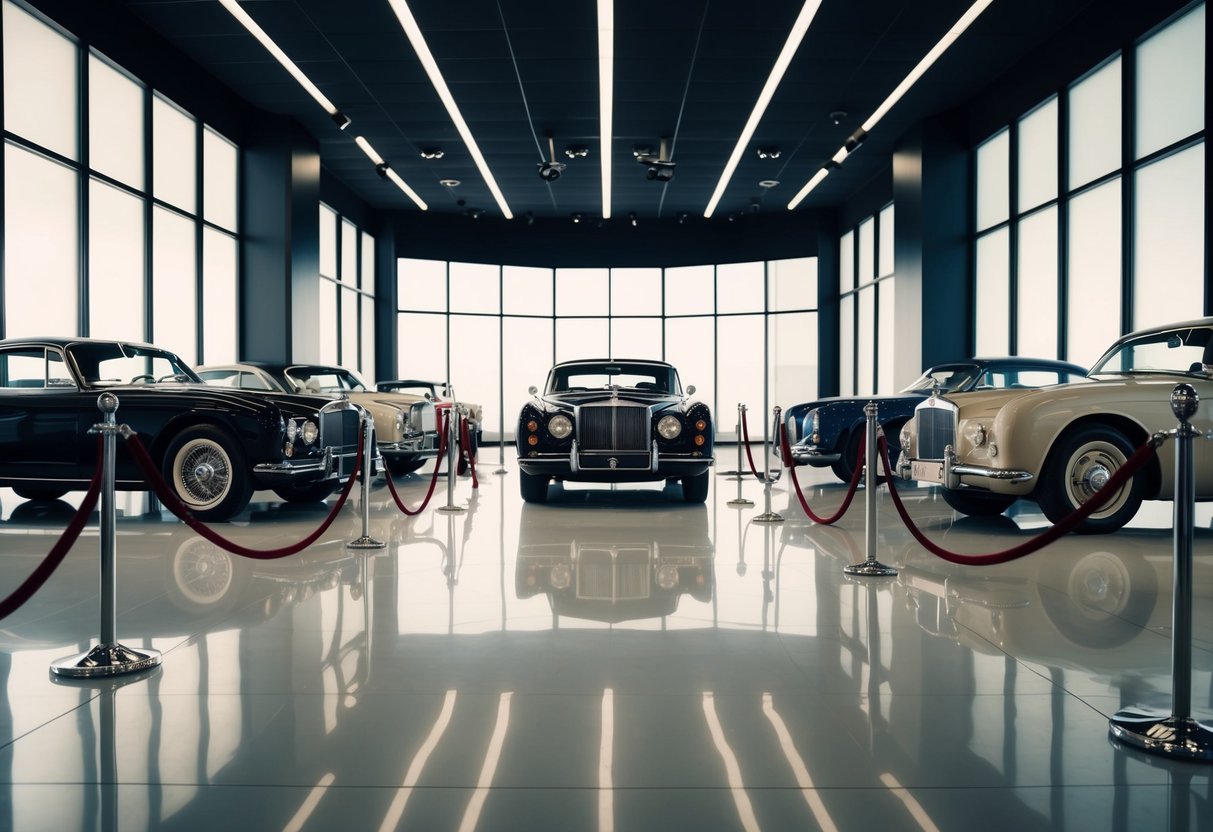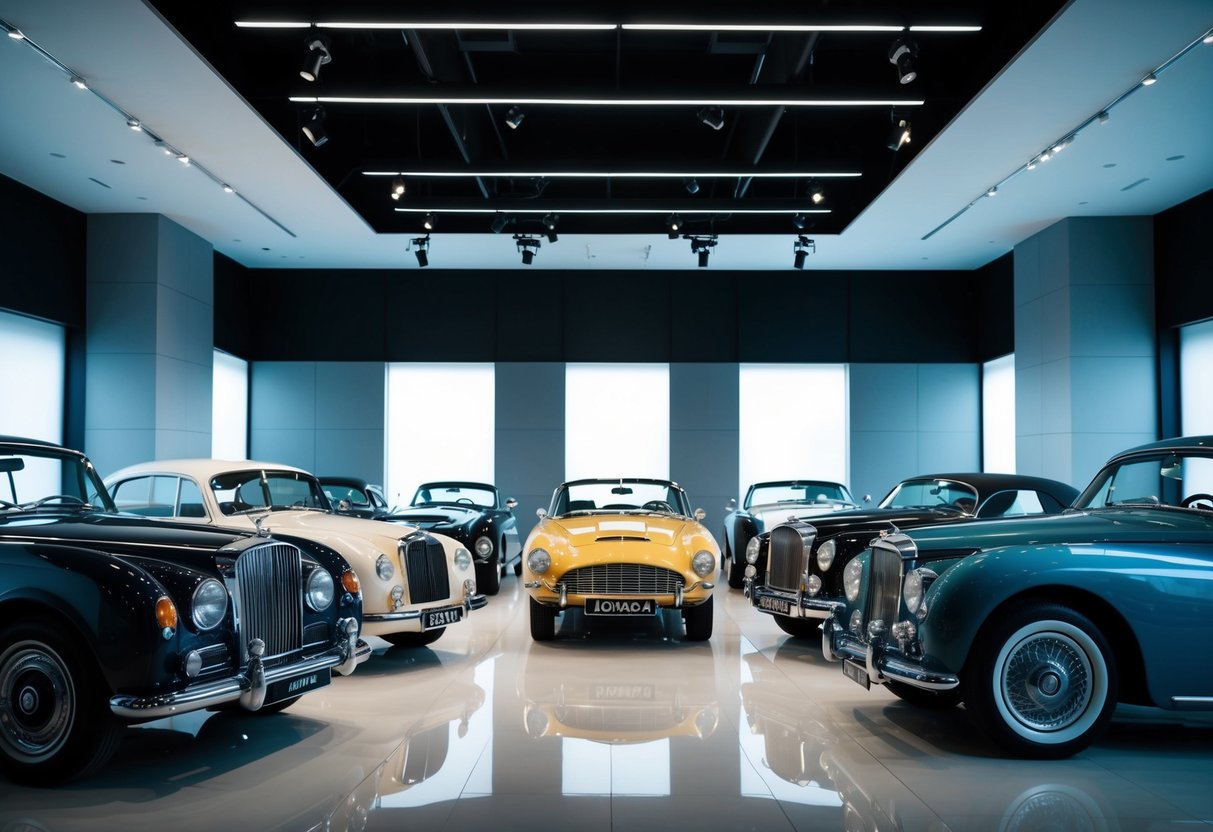
Collecting classic luxury cars is more than just a hobby; it’s a journey into automotive history and a celebration of engineering excellence. Each vehicle tells its own story, capturing a moment in time when craftsmanship and style set new standards in the automotive world. This pursuit is not only about picking up rare collectibles—it’s about appreciating the legacy each car carries.
For those passionate about preserving automotive heritage, classic cars offer a unique connection to the past. Every car is a piece of history that reflects innovation and design from its era. Enthusiasts often find that restoring and maintaining these vehicles enhances their appreciation for this unique intersection of art and engineering.
An understanding of classic luxury cars also includes recognizing their value as collector items and appreciating the impact of their design and performance. The allure of these cars lies in their rarity and elegance, which continues to captivate auto enthusiasts. For those ready to embark on this rewarding journey, acquiring a classic luxury car presents a unique opportunity to own a tangible piece of history.
The Allure of Classic Cars

Classic cars continue to captivate enthusiasts worldwide due to their timeless aesthetics and representation of a bygone era in automotive history. These vehicles not only symbolize unparalleled craftsmanship but also embody significant cultural and historical impacts.
Defining Classic Cars
Classic cars are often identified by their enduring design and historical value. Generally, they are vehicles from the early to mid-20th century that have maintained their relevance and charm through the decades. These cars represent the pinnacle of design and engineering from their respective eras. Collectors cherish them for their originality, rarity, and unique stories. Models like the 1950s Chevrolet Bel Air or the 1960s Ford Mustang are examples of classics prized for their influence and style. Each classic car serves as a tangible piece of history, reflecting the technological advancements and social dynamics of its time.
The Art of Craftsmanship
The craftsmanship of classic cars sets them apart from their modern counterparts. During their production, each vehicle was created with meticulous attention to detail, often handcrafted with extraordinary precision. Skilled artisans would often incorporate elements of art deco, adding elegance and sophistication to the design. Materials such as leather, chrome, and wood were used extensively to craft interiors, offering a premium feel not always seen in today’s mass-produced vehicles. The uniqueness of each car was bolstered by the manual labor involved, ensuring that no two vehicles were identical. This emphasis on quality and individuality contributes significantly to the allure of classic cars for collectors and enthusiasts alike.
Historical and Cultural Impact
Classic cars occupy a significant place in automotive history, representing both technological milestones and cultural shifts. They played crucial roles in defining the economic and social landscapes of their time. With iconic models visible in films, literature, and popular culture, these cars often symbolize freedom, status, and luxury. The classic car movement is steeped in rich automotive heritage, with many famous models originating from post-war innovations or pre-war opulence. They serve as relics of history, telling stories of past eras and resonating deeply with collectors who seek to preserve this legacy. Their continued presence at exhibitions and auto shows highlights their lasting impact on contemporary culture.
Notable Classics Through Time

Classic luxury cars stand out as timeless pieces of engineering and design. From American innovation to European elegance, these vehicles are celebrated for their unique contributions to automotive history and distinctive styling that captures the essence of their eras.
Icons of Innovation: Ford and Chevrolet
Ford and Chevrolet have carved their names into the annals of automotive history with innovative models that redefined the industry. The Ford Model T, introduced in 1908, is often credited with transforming the automobile from a luxury item to a necessity, making cars accessible to the masses. Its impact on manufacturing processes, particularly through assembly line production, set new standards for efficiency.
Another iconic creation, the Chevrolet Corvette, became synonymous with American sports cars. Known for its high performance and sleek design, the Corvette remains a symbol of Chevrolet’s commitment to innovation. Its evolution over the years highlights the brand’s focus on technological advancement and distinctive styling, ensuring its place as a classic in the luxury sports car category.



